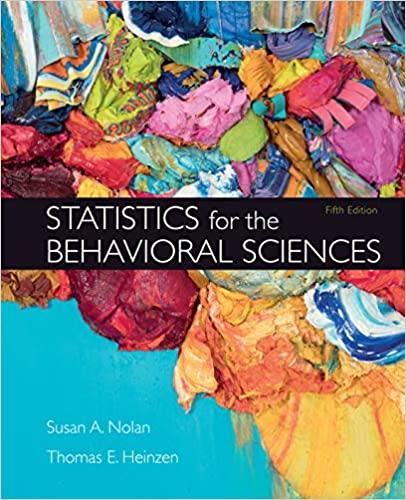The New York Times reported on predictive policing, a strategy based on formulas that forecast whether a
Question:
The New York Times reported on predictive policing, a strategy based on formulas that “forecast” whether a particular person is likely to commit a crime (Elgion & Williams, 2015). What are the predictive data that the police consider? They look at personal connections— whether in real life or on social media—with victims of homicides, members of gangs, or people in prison. They also look at whether people are unemployed or have a history of drug or alcohol problems.
a. What are the predictor variables in this example?
b. What is the outcome variable?
c. What other variables might predict this outcome variable? Name at least three.
d. The same article that described predictive policing also discussed critiques of this method. The reporters noted that these tactics “legitimize the profiling of racial minorities who live in poor, highcrime neighborhoods, and prompted officers to enforce laws selectively.” Based on this example, explain why regression is not a perfect science—why can regression lead to problems with prediction?
Step by Step Answer:

Statistics For The Behavioral Sciences
ISBN: 9781319190743
5th Edition
Authors: Susan A. Nolan, Thomas Heinzen





